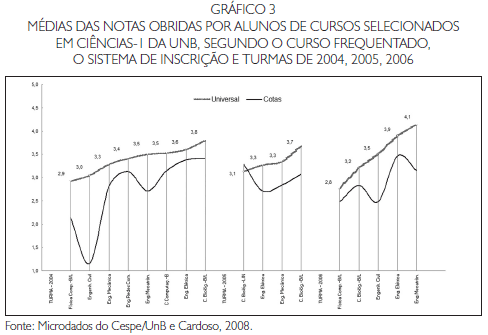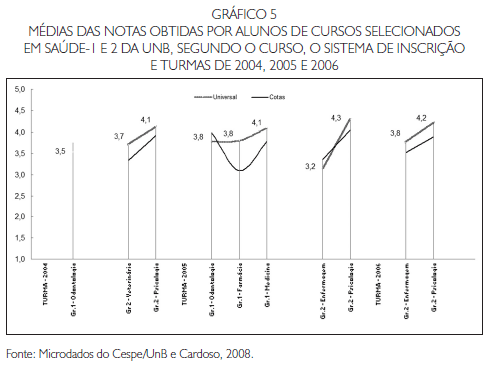The text deals with the academic achievement of three cohorts of students who entered the University of Brasília in 2004, 2005 and 2006, by means of entrance exams involving two selection processes: a 20% quota for black students and traditional evaluation procedures. Achievement was measured by the average grades obtained in courses followed by two groups of students in each career, those from the quota system and those from the non-quota system. Careers were classified according to their social prestige and their areas in the entrance exams - Humanities, Sciences and Health. Broad data trends indicated that, for the three cohorts in all areas, in approximately two thirds (or more) of the careers there were no meaningful differences between the average grades of the two groups, or these were favorable to students from the quota system; an exception, in one single year, was in the Sciences area. Main trends observed, echoed by empirical evidence from other universities, indicated an absence of systematic achievement differences in favor of non-quota students, thus opposing forecasts that the quota system would lead to decreasing academic standards in higher education, as voiced by many criticisms of the system.
HIGHER EDUCATION; STUDENT EVALUATION; UNIVERSITY OF BRASILIA; RACE





